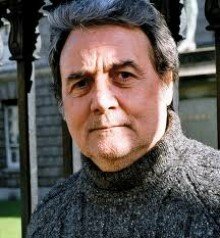Welcome to UK Poetry - November 2007
Welcome to the ninth issue of Poetry International Web’s UK domain. The UK poetry landscape is beginning to take on texture, with representatives from many corners of the physical British landscape. In our latest issue, we welcome one of this year’s National Poetry Day Dream Tour poets as our guest editor: Robert Crawford was selected to represent Scotland during the UK’s capital cities Dream Tour at the start of October this year.
Scotland-born and based, he has published several collections of poetry and criticism, through which his birthplace dominates as a subject. From his first full collection in 1990, A Scottish Assembly, to more recent editorial on anthologies like The New Penguin Book of Scottish Verse a decade later, Robert has shown a commitment to the dialects, traditions and culture of his homeland.
This issue, Robert selects two Scottish poets and one Welsh poet. Gwyneth Lewis, the Welsh Dream Tour poet for National Poetry Day, stands alongside two Scottish poets, A. B. Jackson and Richard Price. Each of them approaches their cultural identity in different ways.
Jackson’s work is underpinned by a feeling of difference, being outside of conventions that are rooted in a religious (possibly Calvinist) background. In life, however, Jackson is a web designer and developer. Price’s work as a publisher, championing Scots dialect poetry and Scottish poets, marks a passion for his cultural roots, but his own work is decidedly personal, less noticeable for cultural referents than for its linguistic and formal dexterity. Lewis, meanwhile, was Welsh National Poet from 2005-6, writing poems for her place of birth as much as about Wales. In this selection, post laureateship, she returns from a public platform to the personal world, using, amongst other things, nimble knitting metaphors to weave deft poems about family and love.
This isn’t to say this is a regional selection, though. These poets have travelled from home and returned, defining en route their own centres of importance and interest, their own miniature worlds between the blank columns of the page and screen. There’s a sense that communicating place, in these poems, is a way of seeing the world, as much about the poet’s eye as it is about the poet’s place of birth.







